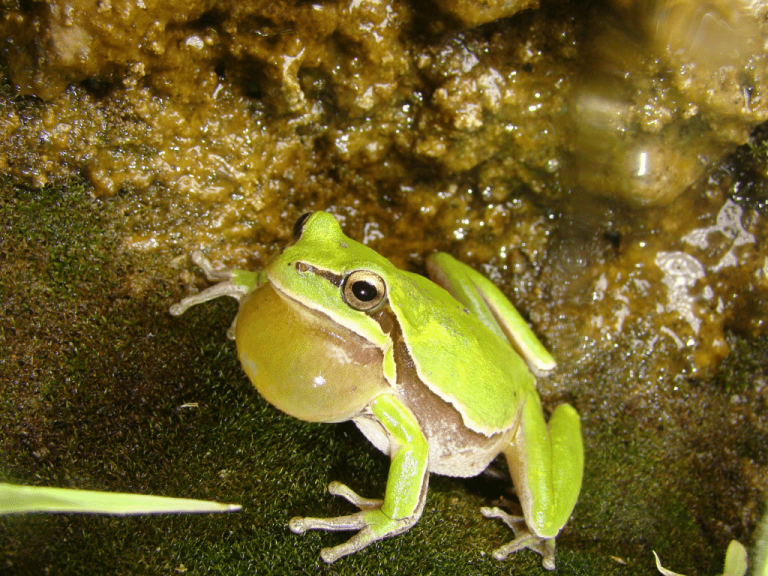In a poem by Sima Guang of the Song Dynasty, he wrote: “During the Huangmei season, rain falls in every household; in the green grass and pond, frogs are everywhere.” This indicates that the Chinese people had an understanding of the habits of frogs long ago. When the harsh winter passes and spring arrives, hibernating frogs awaken and become active.
After a rain, especially when rain is imminent, you can often hear a chorus of frogs by the river or lake, enthusiastically croaking, as if holding a lively concert. What is the reason for this? Frogs are not suitable for survival in overly cold, hot, or dry environments; they prefer to live in cool and moist places, especially during seasons of continuous rain. Before the rain, as the air pressure drops and humidity increases, the air becomes more humid, allowing their skin to absorb a large amount of moisture, thus making them quickly active.
At the same time, during seasons of continuous rain, depressions often form ponds of varying depths, where various insects begin to breed in large numbers. Frogs, emerging from hibernation after winter, vigorously prey on these insects to replenish the energy they lost during hibernation, preparing themselves for the upcoming breeding season. As the reproductive cycle approaches, they become even more active, migrating to water bodies, croaking and mating by the riverside or lakeside. After mating and laying eggs, they become relatively calm again.

